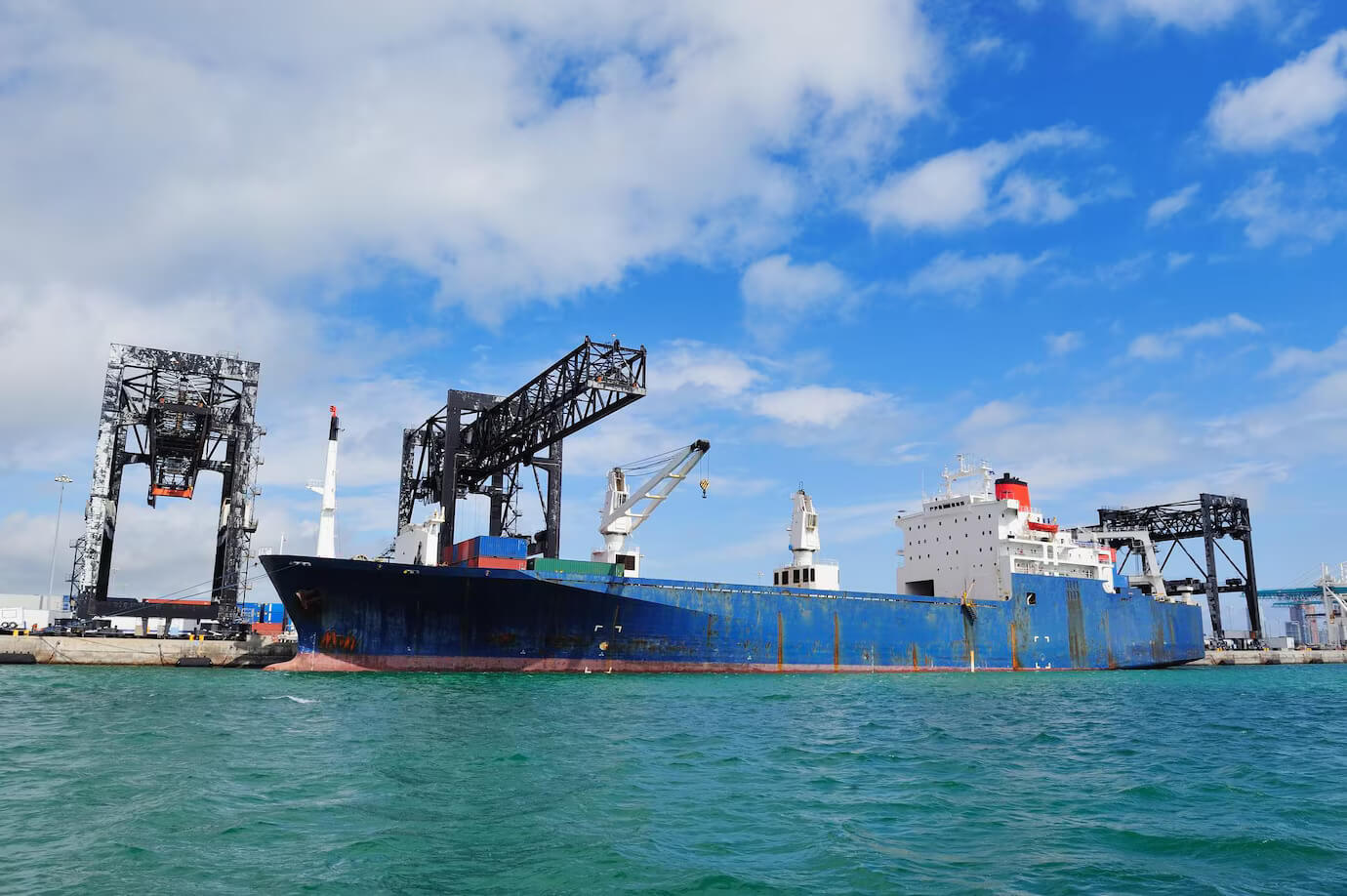Legal Implications of Maritime Accidents: Liability and Compensation
From car wrecks on the road to nautical mishaps out at sea, accidents are bound to happen from time to time. Particularly, maritime accidents occur all too often, over 5,000 boating accidents happen annually in the United States. This is why sailors wish one another fair winds and following seas, as there is no telling how high waters will behave, nor whether a vessel’s crewmen will always be safe on the ship they work for. While crews may be able to make predictions based on weather conditions and past statistics, there are always possibilities of defective equipment, collisions, explosions, crane mishaps, barge accidents, slipping and falling, and other injuries. In fact, the main factors that lead to maritime accidents are equipment failure, environmental conditions, and human error.
What does all this mean for those busy at work, risking their lives or physical well-being to perform their duties at sea? Put simply, this is where maritime law comes in. Maritime law governs sea activity, including but not limited to marine navigation, commerce, shipping, and, as mentioned, maritime accidents.
Legalities of Maritime Law
Legal Principles
First and foremost, it is important to note that maritime law differs from laws on land, specifically as governed by admiralty jurisdiction which accounts for any accidents on high waters. In detail, it covers marine navigation, crime, or business and commerce, especially when it comes to interstate and international business, and the rights of foreign citizens. Therefore, maritime law does not exactly apply to national jurisdiction on land in the United States, with the main exception being corporate activity that takes place on land but is primarily characterized as nautical.
At its core, maritime law is designed for maritime workers who face the possibility of accidents, injury, or illness. It is also important to note that maritime law only deals with navigable waters—bodies of water in which interstate or international business takes place (i.e., major rivers, oceans, and seas).
Application to Land and Sea
When applied to boating accidents, maritime law will recognize the following as completely nautical matters:
- Cargo or cruise ship accidents,
- small boat or commercial fishing boat accidents,
- and oil and gas platform accidents.
Separate from this list, dockyard accidents are another mishap that dips into gray area but still falls under admiralty jurisdiction. Laws that cover dockyard accidents apply to employees, passengers, or visitors who sustain injuries near shipyards, marinas, docks, or ports. Accidents are still possible in these areas because of the proximity to high waters.
In the Event of an Accident
The nature of the sea makes anyone accident-prone, especially those employed to do hard labor on the choppy waters of the world’s largest oceans. So, what should you do in the event of these accidents? And what kind of support do you have in case your injuries inhibit your ability to work?
Maritime Safety
As mentioned, injuries are bound to happen as the result of accidents, and frankly, they are a negative “side effect” of working nautically. To support maritime safety and also compensate for the possibility of injury, liabilities must be held somehow and somewhere. As part of the Merchant Marine Act of 1920, the Jones Act was passed originally to enable the American merchant marine to perform their shipping duties. Nowadays, it carries the same weight with an even broader emphasis on worker safety and coverage in the event of injury.
The Jones Act
The type of coverage the Jones Act provides is in the case of employer negligence. When negligence is the source of injury, all employees should have the right to file lawsuits against their employers for failing to provide safer working conditions both on and offshore. While these conditions tend to vary, the usual threats to safety are oil or gas leaks, inadequate crewmen training, and defective or, even worse, lack of equipment.
Of course, for employees to file a lawsuit, their injuries must be deemed preventable and caused by the employer’s failure to provide adequate safety measures. Obviously, natural conditions such as rough waters or hostile weather differ from ordinary work conditions and do not apply. With the Jones Act in place, not only will employees be covered if they sustain injuries, but employers can feel more confident when providing their workers with the appropriate tools to perform their jobs effectively. Above all, the Jones Act is federal law, mandating employers to provide a safe and protected work environment for all maritime workers. So, if injuries occur as a result of negligence, the employer’s failure to meet protocol is inexcusable.
Maritime Law Firms and Attorneys
If it just so happens that you currently face a maritime accident situation, you can contact maritime law firms at any point. For instance, South Florida, a region of the United States that borders both the Gulf of Mexico and the Atlantic Ocean, is home to a multitude of law firms that offer support in the event of accidents.
South Florida is also witness to a plethora of nautical activity. In particular, Floridian business and commerce are frequently executed between the Atlantic Coast of the United States and Europe, utilizing the sea as their harbor for goods and gateway into international markets. With shipping that goes back and forth and constant changes in weather conditions and turbulent water flow, employees may become more susceptible to injury amidst all the activity.
Maritime attorneys can provide all the resources necessary if injuries occur. Whether a loved one has passed away while at sea or you, yourself, sustained a significant injury on the job, a maritime lawyer knows exactly how to resolve issues and find the coverage you need.
Liability and Compensation
To receive any form of compensation, a maritime worker must be assigned to a vessel at sea, specifically on navigable waters. If eligible, standard compensation for employees will come as maintenance and cure benefits, allowing the workers to look after their health and well-being as well as seek medical treatment for their injuries. This provides an adequate amount of time for the employee to heal while they are at home.
In addition to the Jones Act, there is also the Death On High Seas Act (DOHSA), which helps families who have lost a loved one to a work-related accident. DOHSA considers the family eligible for compensation as the beneficiaries of the worker. The Longshore and Harbor Workers’ Compensation Act, on the other hand, differs from DOHSA and the Jones Acts in that it serves a more neutral purpose. Instead of placing blame, it protects employees of seaworthy vessels as well as any nautical employment under maritime jurisdiction simply based on the nautical types of environments.
For passengers, compensation might look like the standard duty of care that protects a passenger’s right to safety while aboard a vessel. If their safety is compromised, passengers may receive compensation for the liability that sea vessel owners and crewmen hold.
Lastly, if legal assistance is needed in making a maritime claim, your best bet is to find a personal injury attorney with a background in maritime law. These lawyers will clarify all matters as they relate to types of injury, seaworthiness, the Jones Act, maintenance and cure, and specific liabilities. After all, the vulnerable nature of maritime work is cause for any form of compensation, especially as employees embark on long journeys, often abroad, in pursuit of maintaining a stable economy for business.
Frequently Asked Questions Regarding Maritime Law
What is the legal principle of maritime law?
The legal principle of maritime law implies the management of nautical issues that may come up while on navigable waters. This ranges from sustaining injuries from maritime accidents to settling claims and disputes made in an attempt to receive compensation due to conflict between employers and employees. Nonetheless, maritime law aims to resolve these issues and prevent future mishaps in any way possible.
Is maritime law legal on land?
Maritime law primarily refers to a jurisdiction that covers any matters related to nautical activity, specifically business commerce, marine navigation, maritime accidents, and navigable waters. One exception, for instance, would be the business activity of a land-based corporate entity that functions primarily as maritime. A marina is one example of many, as its workers are subject to similar accidents, injuries, weather conditions, and business matters as those out at sea navigating the high waters.
Where does maritime law apply?
In most cases, maritime law applies to navigable waters or any water bodies utilized for interstate and international business commerce. Oceans, seas, and major rivers between states and countries are used to transport goods, creating business activity that faces regulations.
What should you do after a boating accident?
When it comes to boating accidents, the first step is to assess the physical well-being of all parties involved. From a legal standpoint, injuries sustained on navigable waters as a result of accidents are considered part of admiralty jurisdiction. This means that if working, the injured employee is eligible for compensation based on the employer’s federal responsibility to protect its workers.

 BACK TO BLOG
BACK TO BLOG

